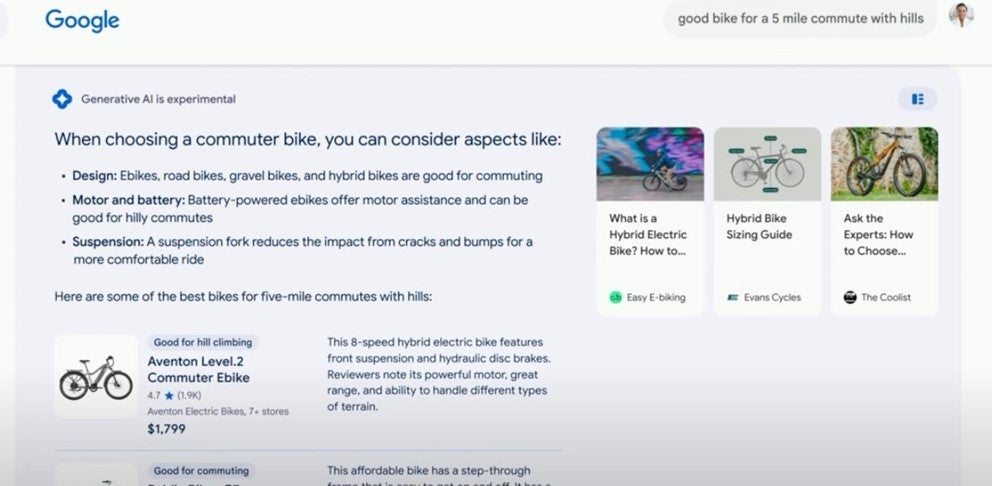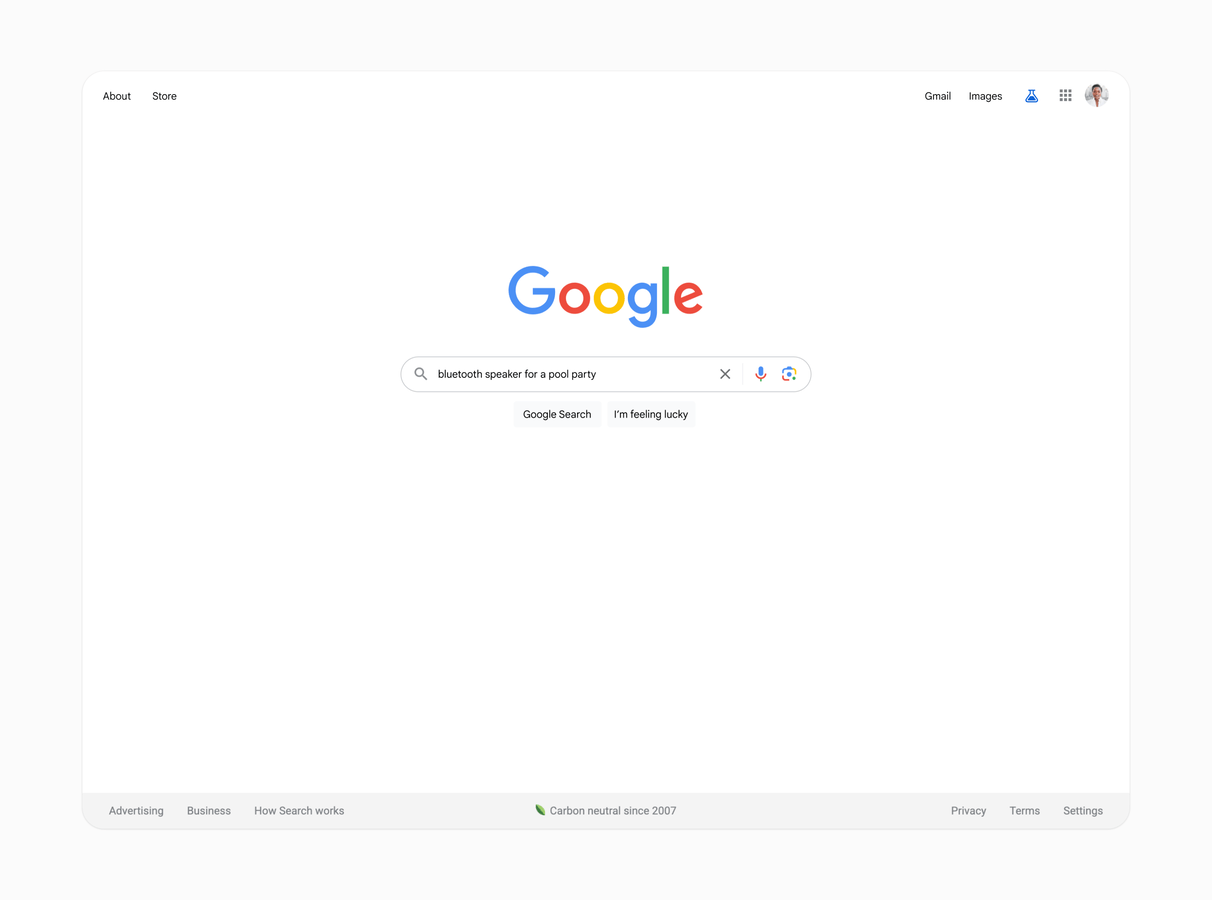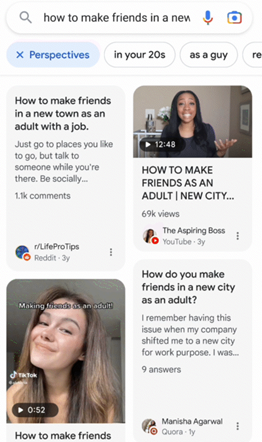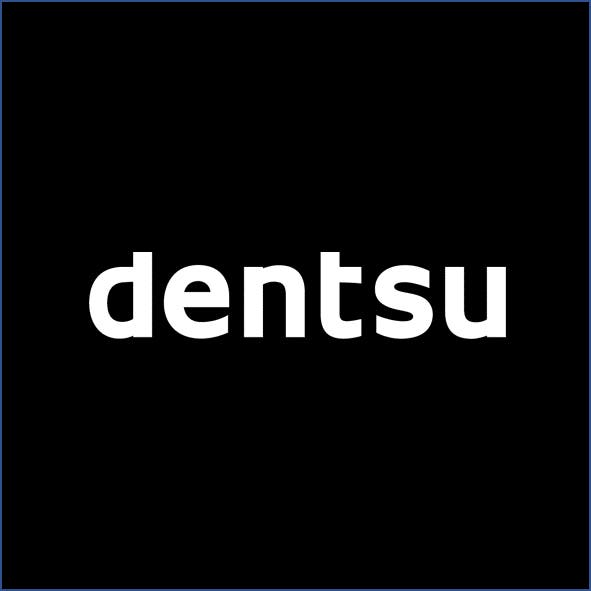It has been a significant week for the search industry as Google shared exciting plans for evolving its search proposition, specifically improving how customers search for and view results. The updates were announced as part of other technology changes at the annual developer conference, Google I/O, on 10th May 2023.
The industry has been expecting something significant as Google’s search dominance has recently been under pressure. Microsoft’s Bing is a key investor in OpenAI and ChatGPT, and users have increasingly taken to platforms like TikTok to engage with shorter-form video content to answer their queries.
So, what was announced?
1. Search Generative Experience
Search Generative Experience (SGE) represents the most significant visual change to Google’s search results in years.
SGE uses AI to generate summaries, transforming the search engine results page (SERP) for some queries. These summaries appear at the top of the SERP and are powered by Google’s advanced large language models. The AI snapshots provide concise, relevant summaries and links, often dominating the first page of search results, especially on mobile.

SGE has not been fully rolled out and is currently an opt-in feature, part of the Search Labs project. It will only appear when Google’s algorithms determine it’s more helpful than standard results and will avoid some sensitive subjects, like health. The new feature aims to provide better answers to complex queries that may require multiple searches or are more exploratory in nature.

While the feature is still in development, Google executives see it as a foundational long-term change in how people search, enhancing the experience by helping users ask better questions and receive more comprehensive answers.
2. Generative AI label

Google’s updated search experience presents an AI-generated response above traditional search results and is labelled ‘experimental’. The answer appears to cite at least some sources for generating the response, which can be clicked for further information. Users can also ask a follow-up question or click the top right toggle button to explore further.
3. Introducing ‘Perspectives’
Google will introduce a Perspectives filter, where a searcher may benefit from various viewpoints to answer their query. Tapping the perspectives filter displays long and short-form videos, images and posts from discussion boards, Q&A sites and social media platforms.

4. Updates to helpful content
The Helpful Content update, launched in mid-2022, targets content primarily created for search engine ranking rather than helping users. Google announced they plan to update this system in the coming months to better understand content from personal or expert perspectives. The update will improve rankings by focusing on unique expertise and experience, revealing more “hidden gems” in search results.
What do these changes mean for the search industry?
The update has yet to be rolled out, so we don’t yet know the performance impact these changes will have. However, in the next few weeks, we will start seeing the SGE and Perspectives feature rolled out across the US English language results and only across results where users have opted in. Google has said they will deliver a slow release across waves of users in the coming weeks. If you are US-based and want to sign up for the waitlist, you can find the link here: http://labs.google.com/search.
1. We expect this will provide a better experience for users
By bringing multiple sources into a single generated response, searchers will potentially need far fewer queries to gather the information they need and spend less time looking through information on different web pages. The rise of TikTok search has given many the expectation that answers should be quick to find. This new search format from Google will no doubt be welcomed by a growing audience.
On the other hand, streamlining fundamental information could give other searchers the time – and willpower – to do much more in-depth research, rewarding those sites and brands that provide audiences with deep and meaningful content.
The addition of Perspectives filters ensures that anyone reluctant about trusting AI to make recommendations can look to real people sharing personal experiences on topics or products.
2. We will start seeing richer results
Google has been more than 10 blue links for longer than anyone can remember, but results are about to get even richer.
The focus has, of course, been on the AI-generated text, which will lead the organic results, but there will also be:
- Links to refined or broadened search prompts allowing users to modulate questions (like ‘People Also Ask’, but also in chatbot format)
- Links directly to the sources for answers (which will become more important as more content is generative)
- A Perspectives tab allowing searchers to investigate real users’ opinions and experiences
- The opportunity to access the entirety of the Google shopping graph to compare products at scale
3. Some industries will be impacted more than others
Google hasn’t specified which industries or search results can expect to see these changes. However, these new formats won’t provide answers to all queries.
From what we understand, YMYL (health and finance) queries are categories that may not be impacted. Google intends to be careful not to give inaccurate or false information across all topics, particularly sensitive areas such as health and finance. It has highlighted that the new search experience ‘places more emphasis on producing informative responses corroborated by reliable sources’.
This also means that Google will ‘aim not to generate a snapshot’ across topics with ‘data voids’, ‘information gaps’ or where it has lower confidence in its responses.
Specific impact for SEO:
1. Search queries will change
Looking at how users engage with chatbots and the examples and demos used at the IO conference, it’s clear that user search behaviours are likely to become much more conversational and longtail as users mix query upon query as they engage with the search chat.
This will naturally impact how we deliver keyword research and understand user demands across our clients’ industries. In our view, keywords are likely to remain significant. Still, they will continue evolving as users adapt to new search methods and products within search platforms. There are no firm plans on how Google are going to share updated insights however we expect them to announce it after launch.
What we’re doing:
In the short term, we’re focused on closely monitoring which search queries are triggering SGE. We track over 1 million keywords daily across our clients, spanning 22 markets and many industries. This will give us data to assess the markets, industries, keyword groups and search intent where SGE is being rolled out.
We plan to ensure our SEO dashboards are updated and insight from this data analysis is given to our clients so we can adjust SEO tactics where needed.
In the mid-to-long term, our focus for clients will remain centred around their customers, using keywords to understand search demands and trends. We also believe that moving away from individual keywords and focusing on topics, positioning our clients as experts providing rich, high-quality, helpful content will be needed to maintain visibility in Search Engine Results Page (SERPs).
To support this, we will be ensuring our reporting and keyword tracking are grouped into topical entities so we can better align with how Google is structuring its search results in SGE.
We are working closely with our tool partners, including GetSTAT, to ensure our keyword reporting reflects this update so we can capture changes once they start happening.
2. Click-through Rate (CTR) will be impacted based on the evolving SERP structure
This update represents a significant change in how Google displays search results to users and inevitably we will see less traffic as the number of 0 click searches increase. Whilst changes to SERP updates are nothing new, this change has the potential to dramatically impact results and search behaviour. We expect traditional listings to be pushed further below the fold, reducing CTRs where SGE is present.
What we’re doing:
Our SEO teams will continually monitor the CTR performance of our client’s websites. We have a live CTR tracker bespoke to clients which looks at query type and their avg. CTR performance, so anything that increases or decreases will be flagged.
3. Matching content format to query will become more important
With the introduction of ‘Perspectives’, brands are going to see different formats of content work better for different queries. Want to drive traffic to your new kitchenware products? Instead of a typical ecommerce page, which is boosted with conventional SEO metrics such as links, technical setup, content depth and so on, we will start to see social based content such as TikTok or YouTube Shorts appear more. This brings different ranking mechanisms into play, such as social engagement and authorship. Marketing your product has never been so important!
In consequence, more content variety will need to be produced and your PR, Social and SEO teams will be required to connect into a single approach. Your ability to nail the search intent will be crucial so test, test, test whilst you move forward in this new world.
What we’re doing:
We are already monitoring content type by performance. If new trends emerge, we will share and include them as part of our testing programmes. We also have a multi-faceted content studio to help brief, guide and produce a range of content formats for our clients to test with users.
Specific impact for paid search:
Google’s announcement this week was focused largely on changes to the search experience. From an ads point of view, the details shared were notably brief: Google confirmed that search ads will continue to be a core part of the search experience; they will be positioned in dedicated slots on the SERP; and that they will still be clearly labelled as ‘sponsored’ so that users can differentiate between paid and organic content.
While the announcement was light on details, with search ads representing such a significant portion of Google’s revenues, evolving its ad products to make the most of SGE will clearly be a key focus for Google moving forward. We expect to hear more on this over the coming months (potentially as soon as the upcoming Google Marketing Live on 23rd May). In advance of any concrete announcements, our recommendation to advertisers is to focus on the following areas:
1. Take advantage of Google’s latest, AI-driven products
SGE is geared around using Google’s large language models to better understand user intent, and serve relevant content in response to this. This fits naturally with a number of Google’s key search ads products, most notably Performance Max with its AI-driven optimisation across media platforms; and the revamped Broad Match, which could benefit from the additional signals with chat-style inputs in differentiating between user interactions with commercial and non-commercial intent.
2. Maximise relevant data signals
One of the examples where Google highlighted the potential benefits SGE can bring to users was in providing relevant product recommendations based on specific criteria (e.g. ‘best bike for a 5-mile commute with hills’.
While we don’t know exactly how Google might determine which product ads to serve alongside any Generative AI responses to such queries, we would expect that the amount of specific, relevant information provided alongside any products will be critical in any such decision.
This suggests that ensuring you have robust, accurate and comprehensive data feeds featuring high-quality product titles and descriptions will be more important than ever for advertisers wanting to make the most of Google’s SGE.
3. Keep a close eye on your core KPIs
While in beta, Google has confirmed that we won’t be able to see any kind of data split between ads served against queries where an SGE has been enabled and a ‘regular’ search experience. This will make it hard (at least initially) to pinpoint any SGE-triggered changes that might occur to key indicators such as CPCs (Cost per Click) (for example, if competition spikes against users with highly-targeted queries) or CTR (which may be affected if ads are pushed higher or lower in the SERP by the inclusion of Generative AI snippets).
As always, the critical thing for advertisers is to keep a close eye on how these metrics, core KPIs such as sales and ROAS (return on advertising spend), vary over time and to optimise your activity accordingly.
What we’re doing:
Our Paid Search teams are already working with clients to ensure they are leveraging Google’s suite of AI-products, maximising relevant signals via data feeds and conversion tracking, and continuously measuring and optimising performance. We’re also partnering closely with Google to ensure our clients get the best possible support and opportunities to test any new ad product releases as the search experience evolves.
To summarise
Changing SERP results and new features is nothing new within search, something we will continue to adapt to. Our teams already work closely together, however this shift will require paid and organic teams to work even closer together.
To embrace the potential, we have already established an AI working group of search specialists focused on designing what the future of search looks like for our clients, but also operationalising AI by understanding and harnessing AI tools into our ways of working. Through this group, we are already delivering tests for our clients that can be scaled elsewhere. We have developed our own technology, and this Google update highlights more opportunities for us to continue to understand how AI will enhance search.
Ultimately, SGE will enhance the search experience for users by providing better information, which presents a significant opportunity for better performance for our clients.
Authors:
- Barry Loughran, Managing Director of Performance Experience
- Rachael Murdoch, Managing Partner SEO
- Stephen Pritchard, Head of SEO
- Jon Hogg, Head of SEO
- Chris Howard, Managing Director of Performance Media



